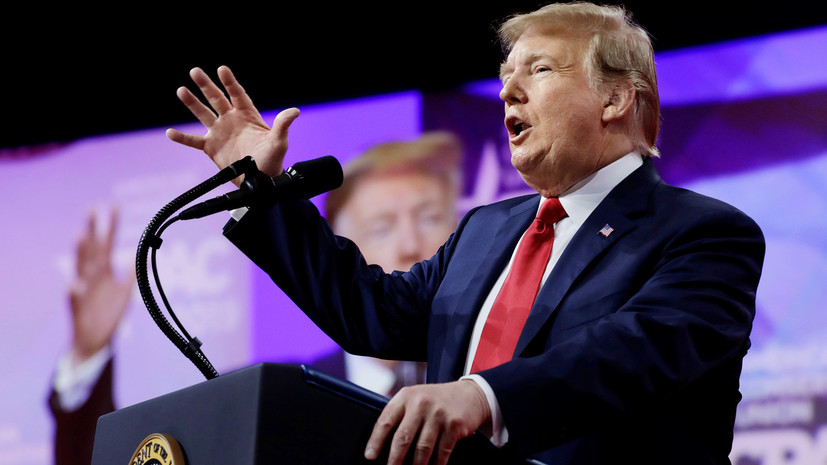The sanctions against Russia imposed by the United States due to the crisis in Ukraine have been extended for a year. On the signing of the relevant document by President Donald Trump, the press service of the White House.
“The actions and policies mentioned in these decrees continue to pose an extraordinary and exceptional threat to the national security and foreign policy of the United States,” the press service quoted the explanatory note to the document signed by the president. “Therefore, I extend for one year the state of emergency declared by decree 13660.”
"The actions and policies of the government of the Russian Federation in relation to Ukraine undermine democratic processes and institutions in Ukraine, threaten its peace, security, sovereignty and territorial integrity, as well as facilitate the misappropriation of its assets," the White House said in a statement.
The document states that we are talking about the extension of measures approved by the previous administration on 6, 16 and 20 March 2014, as well as December 20, 2014, as well as sanctions imposed by the current leadership of the White House on September 20, 2018.
The extension of anti-Russian sanctions by Washington is an echo of the domestic political struggle in the United States and Trump’s demonstration of his attitude against Russia. This view was expressed by a member of the State Duma Committee on International Affairs Anton Morozov.
“Now it is important for Trump to show that he is against Russia. At the same time, I think he is well aware that these sanctions do not have a significant impact on the economy of our country, nor on somehow restraining the influence of Russia in all other regions, ”Morozov told RIA Novosti.
“I don’t think that this will significantly affect, but, of course, it does not improve, to put it mildly, our bilateral relations,” the parliamentarian added.
According to him, the sanctions will stop only when “Russophobia in America ends, when American politicians stop blaming Russia and Russian special services for all their failures and Trump’s persecution stops”.
Russia is open for constructive dialogue
In February 2019, the United States declared that the sanctions against Russia would not be lifted until the Ukrainian authorities gained control of the Crimea and until the Minsk agreements were implemented. This was stated by Deputy Permanent Representative to the United Nations Jonathan Cohen during a meeting of the UN Security Council on the situation in Ukraine.
At the same time, Cohen noted that Washington welcomes “the commitment of the Ukrainian authorities to the implementation of the Minsk agreements”.
In turn, Russia has repeatedly stressed that it is not a party to the conflict in Ukraine and acts as an intermediary in resolving the situation. Crimea became the Russian region in 2014 as a result of a referendum in which the majority of the inhabitants of the peninsula spoke in favor of reunification with Russia.
Prior to that, Donald Trump himself has repeatedly spoken about the likelihood of lifting sanctions against Russia. In August 2018, he allowed the likelihood of the lifting of sanctions if Moscow does "something useful" for Washington in Syria and Ukraine.
“I would consider this option if they do something useful for us. But without this, I will not consider this, ”Trump said in an interview with Reuters.
A few months earlier, in July 2018, in response to a proposal by one of the senators to tighten sanctions against Russia, Trump said that no changes were planned in this area.
"Sanctions against Russia will remain in force in the same form as they are," Trump concluded.
However, in November 2017, Trump said that strengthening relations between the United States and Russia would benefit the world. He expressed the point of view that “being in good relations with Russia instead of fighting it is an advantage,” and noted that recently “heavy sanctions pressure has been put on Moscow”.
The Russian side has repeatedly noted that it is ready for a dialogue with the United States, but the discussion should be constructive. In particular, in February 2019, Foreign Minister Sergey Lavrov spoke about this.
“We ... are open to constructive dialogue. Of course, on the basis of equality, mutual benefit, and not on the principle of "teacher and student." So you can not talk with any country, especially with Russia ", - said Lavrov in an interview with Vietnamese television and Chinese television channels DH and Phoenix.
The Russian foreign minister added that Russia is ready to resume negotiations with the United States "on the basis of a balance of interests, and not on the basis of ultimatums."

